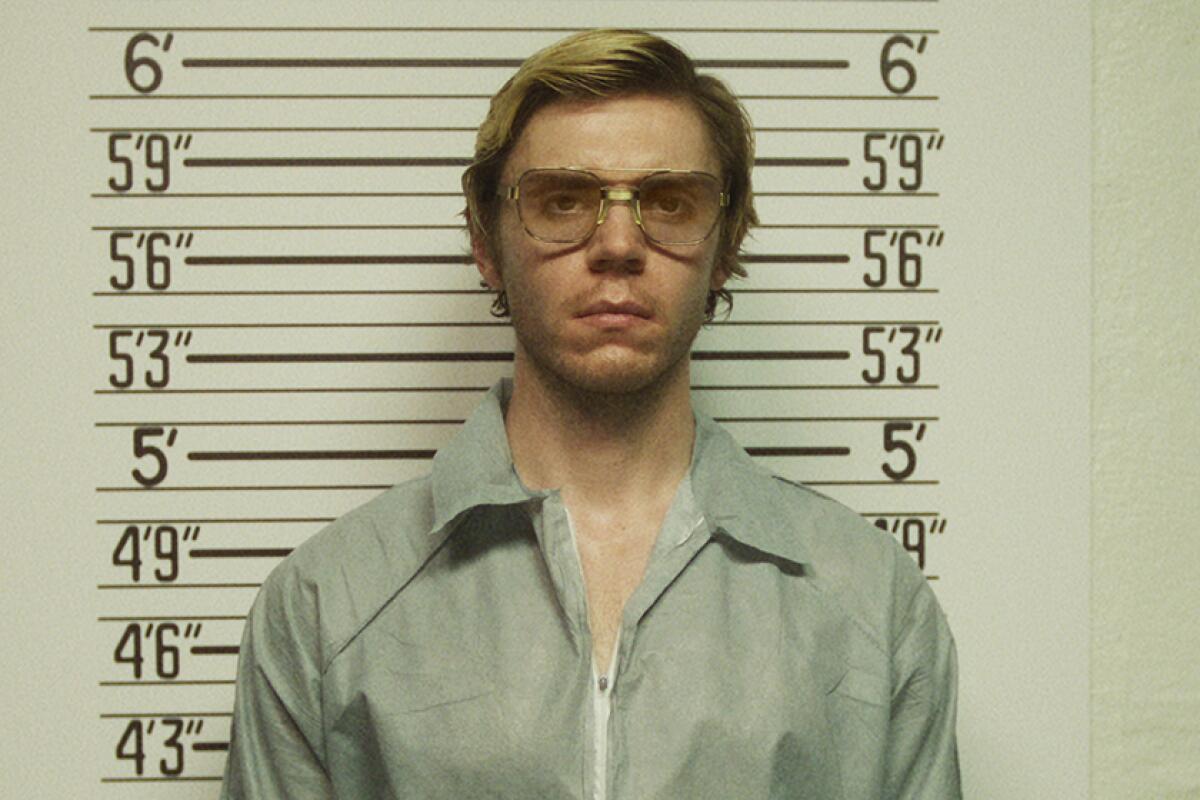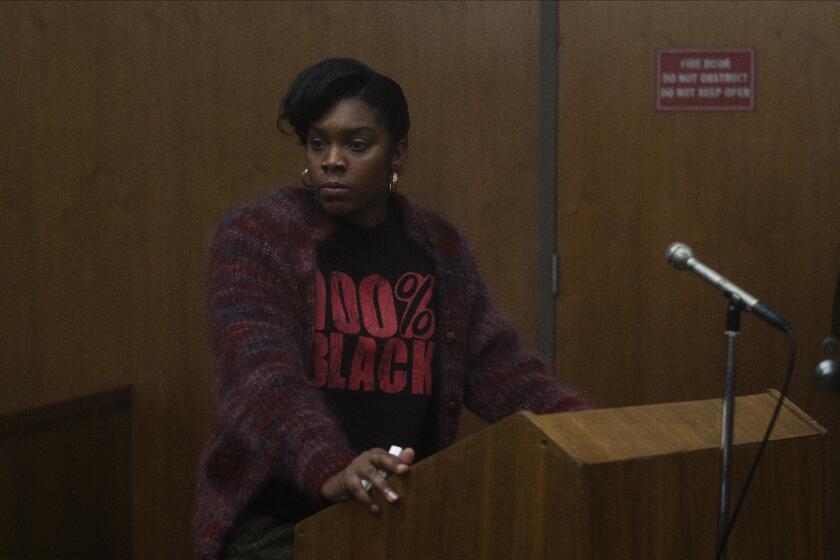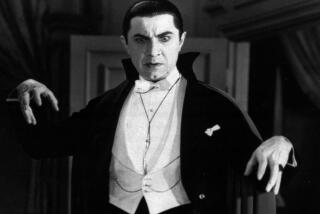What Evan Peters learned after 10 months in Jeffrey Dahmer’s head

Netflix’s hit series “Dahmer — Monster: The Jeffrey Dahmer Story” isn’t actor Evan Peters’ first brush with evil. The rangy star has won an Emmy for playing Colin Zabel, the young detective slightly out of his depth in “Mare of Easttown,” and Marvel fans know him as Quicksilver. But the most powerful name associated with Peters is A-list showrunner Ryan Murphy. Since 2011, they’ve worked together on numerous projects, including “American Horror Story,” which makes Peters no stranger to homicidal maniacs. And climbing into the head of Jeffrey Dahmer for six months, 10 if you count prep, requires stamina, determination and a liberal dose of masochism.
“I really struggled with it in the beginning,” Peters tells The Envelope. After several seasons on Murphy’s “American Horror Story,” he was trying to avoid playing another dark character. “It was something that I wasn’t really planning on doing, but Ryan sent the script to me and the writing and the series were all so tragic and compelling that I really felt affected by it.”
Filmed mostly in Los Angeles between March and September of 2021, “Monster” follows Dahmer’s life from his school years in Ohio through to his 1994 murder at the hands of another prisoner at Columbia Correctional Institution in Wisconsin. By then, Dahmer had killed 17 men and boys. Some of the victims were dismembered, their parts stored in his Milwaukee apartment, and some he ate. The stench tipped off the neighbors in the mostly Black section of the city where police were evidently accustomed to ignoring complaints.
The Times spoke to the most public critics of the streamer’s No. 1 new series about why they object to ‘Dahmer — Monster: The Jeffrey Dahmer Story.’
“Our mission was to show what a tragedy it was and how the system failed. Because of multiple forms of prejudice, it failed the victims and their families and neighbors who tried to sound the alarm,” Peters says. “After I read it, I looked at the system differently and I hoped that if people watched it they would feel the same.”
You could say “Monster” is a horror show with social themes that emphasizes writing and performance over gore and violence. It could be called the thinking man’s horror, which makes it sound boring. The truth is it’s anything but. On Dahmer’s table is a bloody drill, a bloody hammer lies in the bedroom, and on the plate in the fridge is a lean piece of raw meat waiting to be consumed. That’s just about all the gore you get, and it’s about all you need.

Instead of relying on quick edits and graphic content, filmmakers amp up tension by slowing down the action and leaning on subtext. Peters doesn’t have to act scary. We know what he is, we know what he is capable of, and we know that the poor young man he just brought back to his apartment better figure things out pretty soon or he is lost.
“I was constantly telling myself to slow down and take my time throughout this process. I didn’t know going into it that they were going to be editing in long takes. So, it somehow serendipitously ended up working out,” he says.
Serendipitous or not, the harder you work, the luckier you get. And Peters put in the hard work. Given four months of prep (a lifetime in film and TV), he pored over books, interviews, psychological profiles, confessions, newspaper clippings and documentary films.
“You see this form of regret,” he says of the Dahmer interviews. “But it’s really a confusion about why he even wanted to do what he did and understanding it was wrong. He struggled with it and self-medicated with alcohol but ultimately chose to cross over and started, as he put it, ‘the long slide down.’ It’s a deterioration into a compulsion. And mixed with his worsening alcoholism, he just completely loses himself and can’t control it anymore.”
Additional acting challenges included aging the character from 17 to 34. His voice and comportment change while his alcoholism and compulsion worsen. Peters had hoped to halt production for a few weeks while he gained 20 pounds, but Murphy deemed it unworkable. Teaming with a dialect coach, Peters created a 45-minute audio composite that he listened to every day. Wardrobe loaned him the shoes he would wear for the role and he often wore jeans and glasses simulating Dahmer’s. When he wasn’t carrying a cigarette, he carried weights that would minimize the swing of his arms in a manner similar to his character.
“I wouldn’t say Method,” is how he doesn’t describe his process. “I think that term has been misconstrued over the years. Everybody has their own method. I’d rather just stay in it while we’re shooting, try to be as authentic as possible. I find it very difficult to go in and out of it.”
So, he stayed in it. For six months. When it was over, he decompressed by watching co-star Richard Jenkins, who plays his father, play father to another impossible son in the Will Ferrell comedy “Step Brothers.” And instead of hitting some far-off tropical isle for a week, he went to far off St. Louis to visit friends and family.
More to Read
From the Oscars to the Emmys.
Get the Envelope newsletter for exclusive awards season coverage, behind-the-scenes stories from the Envelope podcast and columnist Glenn Whipp’s must-read analysis.
You may occasionally receive promotional content from the Los Angeles Times.











